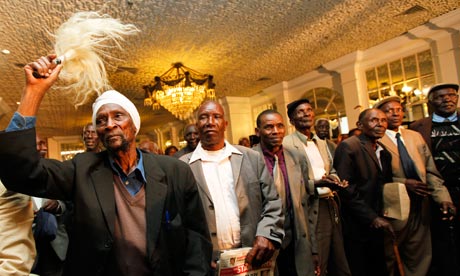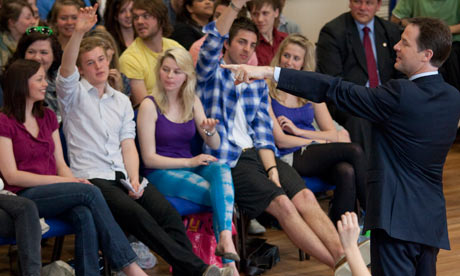
On May 18, standing before the House of Commons, Canadian Prime Minister Justin Trudeau will offer a full apology for the Komagata Maru incident. File Photo
Canadian leader Justin Trudeau is to tender a full apology for the Komagata Maru incident of 1914. It should trigger similar repentance elsewhere for other sins of the past.
History rarely produces moments of epiphany, where politics appears as a creative act of redemption and the future becomes a collective act of healing. Each society carries its wounds like a burden, a perpetual reminder that justice works fragmentarily. Suddenly out of the crassness, the crudity of everyday politics, comes a moment to treasure. On May 18, standing before the House of Commons, Canadian Prime Minister Justin Trudeau will offer a full apology for theKomagata Maru incident.
The drama of the ritual, the act of owning up to a wrong and voluntarily asking for forgiveness is rare in history. One immediately thinks of Willy Brandt, the West German Chancellor, kneeling down during his visit to the Warsaw Ghetto and apologising to the Jews. The act was moving. For once instead of the mere word, the body spoke in utter humility as Brandt knelt before the monument. It was a sheer act of courage, responsibility and humility, an admission of a politics gone wrong, a statement of a colossal mistake that needed redemption.
Hundred years to atonement
This movement for forgiveness is important. Forgiveness adds a different world to the idea of justice. To the standard legal idea of justice as retaliation, compensation, forgiveness adds the sense of healing, of restoration, of reconciliation. Society faces up to an act of ethical repair and attempts to heal itself. Memory becomes critical here because it is memory that keeps scars alive, and memory often waits like a phantom limb more real than the event itself.
The Komagata Maru incident is over a hundred years old. But like the Jallianwala Bagh atrocity, it is a memory that refuses to die easily. It is a journey that remains perpetually incomplete, recycled in memory as Canada would not allow the homecoming.
Komagata Maru was a ship hired by Gurdit Singh, a Hong Kong/Singapore-based Sikh businessman, a follower of the Ghadar Party, who wanted to circumvent Canadian laws of immigration. The journey of 376 Indians, 340 of them Sikhs, began from Hong Kong. They finally reached Vancouver where a new drama of attrition began. British Columbia refused to let the passengers disembark, while Indians in Canada fought a rearguard struggle of legal battles and protest meetings to delay the departure. Passengers even mounted an attack on the police showering them with lumps of coal and bricks.
The ship was forced to return to Calcutta, 19 of the passengers were killed by the British and many placed under arrest. Komagata Maru was a symbol of racism, of exclusionary laws, a protest to highlight the injustice of Canadian laws. When Mr. Trudeau apologises, he will perform an act of healing where Canada apologises not only to India but to its own citizens, many of whom are proud Sikhs. The index of change is not just the ritual apology but another small fact. The British Columbia Regiment involved in the expulsion of the Komagata Maru was commanded between 2011 and 2014 by Harjit Sajjan, now Canada’s Minister of National Defence.
Apology and forgiveness
This incident echoes the need for similar apologies, acts of dignity which can repair political rupture. Imagine the U.S. apologising to Japanese prisoners imprisoned in World War II. Imagine Japan apologising for war atrocities. Think of the U.S. apologising for Hiroshima and Nagasaki. Press even further and dream of Narendra Modi apologising to the victims of the Gujarat riots of 2002. One senses some of these dreams are remote and realises that, after nearly two years in office as Prime Minister, Mr. Modi does not have the makings of a Willy Brandt. Truth and healing are still remote to the politics of the majoritarian Bharatiya Janata Party.
The very act of apologising and forgiveness reiterates the importance of memory and the vitality of the community as a link between past, present and future. It raises the question of the responsibility for the past and its injustices. Somehow for many politicians, the past is a different country for which they have no responsibility. Australia’s Prime Minister John Howard refused to apologise to the Aborigines, contending that present generations cannot be responsible for the past. Tony Blair was ready to apologise for the mid-19th century Irish potato famine but refused to apologise for the depredations of colonial rule. One is not asking for facile or convenient apologies, one is asking for a rethinking of politics. David Cameron, in February 2013, came close to an apology for Jallianwala Bagh. More than that, I think what one needs is a British apology for the Bengal famine of the 1940s which eliminated over three million people. It is a pity that it has not received a Nuremberg or a Truth Commission. I realise apology is a mere moral act without the materiality of reparation, but apology returns to the victim and the community the acknowledgement of human worth and dignity. Without the axiomatics of dignity, no human rights project makes any sense.
One must emphasise that forgiveness and apology are not sentimental acts constructing melodramatic spaces creating what French philosopher Jacques Derrida called “the grand scenes of repentance and theatricality”. Here, as Derrida claimed, is that rare moment where the human race shaken against itself examines its own humanity. Anti-apartheid activist Desmond Tutu is even more hard-headed when he says, “In almost every language, the most difficult words are ‘I am sorry’.” Mr. Tutu adds that spurious reconciliations can only lead to spurious healing. For him forgiveness is a wager, an ethical wager on the future of a relationship. This is why the few events of apology which stand up to critical scrutiny deserve to be treasured.
India’s own chequered past
One must realise the past haunts India. Truth-telling, truth-seeking and the dignity and the courage of rituals of apology and forgiveness may do a lot to redeem the current impasses of Indian politics. Indians have not forgiven history or what they call history for its injustices. Yet, the language, the philosophy of forgiveness adds to the many dialects of democracy. I am merely listing moments of apology which could change the face of Indian politics. I am not demanding a census of atrocity but a set of ethical scripts whose political possibilities could be played out. The effort is not to provoke or score points, but to help create a deeper reflection and reflexivity about the growing impact of violence in the Indian polity.
First, I would like Narendra Modi to apologise to the Muslim community and to India for the horror of the 2002 riots. The genocide of 2002 froze Gujarat and India at a point, and the thaw can only be an ethical one demanding the humility of truth and forgiveness. A lot has been written about the unfinished nature of the 1984 riots in which over 5,000 Sikhs lost their lives. I know Manmohan Singh did offer an apology, but the Congress’s behaviour has turned this into an impotent mumbling. In the rightness of things, the Gandhi family owes an apology to the Sikhs, something it has not had the ethical courage to venture. Third, as an Indian, I think one not only has to withdraw the Armed Forces (Special Powers) Act but also apologise to the people of Kashmir and Manipur for the decades of suffering. One must request Irom Sharmila to end her 15-year-long fast demanding the withdrawal of the Act with dignity. There has been enough violence here, and it is time that we as a nation think beyond the egotism and brittleness of the national security state.
Each reader can add to the list and to the possibilities of a new ethical and moral politics which requires a Gandhian inventiveness of ritual and politics. What I wish to add is a caveat. The rituals of apology and the question of justice, reconciliation and ethical repair are not easy. They require a rigour and an inventiveness of ethical thinking which necessitate new experiments with the idea of truth and healing in India.
Mr. Tutu makes this point beautifully and wisely. He talks of the man known as the Nazi hunter, Simon Wiesenthal. In his book, The Sunflower: On the Possibilities and Limits of Forgiveness, Wiesenthal spoke of a Nazi soldier who had burnt a group of Jews to death. As the Nazi lay dying in his deathbed, he confessed and asked for absolution from Wiesenthal. Wiesenthal found he could not forgive him. In the end, he asks the reader, “What would you have done?” — and The Sunflower is an anthropology of various responses.
We need an equivalence of The Sunflower experiment to ask Kashmiri Pandits, Kashmiri Muslims, Manipuris, Dalits, tribals, women what it would take for forgiveness after an act of atrocity. In fact, each one of us is a potential citizen, as perpetrator, spectator and victim, in that anthology. Is forgiveness and healing possible in the history of our lives? Democracy needs to think out the answers.



